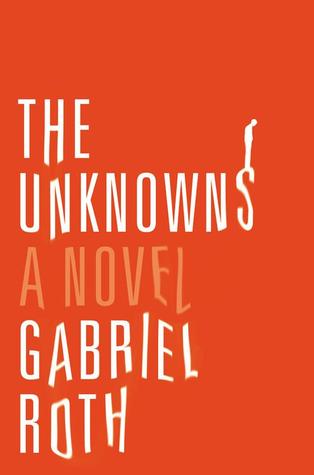Known Unknowns
 A review of Gabriel Roth’s The Unknowns
A review of Gabriel Roth’s The Unknowns
The tech boom of the 90s offered a fascinating new forum for the traditional boy-meet-girl narrative; it introduced new ways of interacting, as well as a host of corresponding new problems. It also elevated geekdom to a near-heroic level: suddenly all those awkward kids you knew in high school who spent their weekends gaming were rock stars. Not surprisingly, this movement continues to spawn a great deal of literature. Some of it, like Ernest Cline’s Ready Player One, offer little to hold onto. But others, like Gabriel Roth’s The Unknowns, deftly and compellingly explore the ways in which technology have changed our capacity to understand one another. The book isn’t flawless; at times it’s very apparent that this is a debut novel. But it’s an excellent debut, all the same, a very worth reading.
The book centers on Eric Muller, whose career as a dot-com entrepreneur has taken him from lonely teenage computer geek to witty millionaire, and yet relationships still elude him. There’s also the issue of his divorced parents: his father’s feeble attempts to start his own internet company begin to prove costly for Eric, while his mother–a recovering alcoholic–attempts to form a new life in a house paid for by her son. All of these things leave Eric struggling for direction–until he meets Maya, a San Francisco-based journalist whose mixture of brashness and vulnerability offer Eric the challenge he’s been looking for. Of course, like all nerd-hero protagonists, he begins to fuck it up as soon as he starts to learn about Maya’s past; maybe it’s just his own neuroses, or maybe his trepidation is justified.
At its heart, The Unknowns is a love story, but it’s also an exploration of the ways in which mass communications–not to mention the wealth it has afforded plenty of folks who don’t fit the traditional celebrity mold–has shaped our conceptions of masculinity. Yes, there’s the him-and-Maya conflict, but more than that there’s this abstract internal conflict about whether or not this relationship has meaning and value, what its function is. To Eric the computer programmer, romance is a thing to be analyzed just like computer code; in high school he kept a notebook featuring notes on 39 girls in his class, seemingly mundane details that he thought might somehow help him better understand women. Of course, once the notebook found its way into the hands of his classmates, his reputation as a loser was cemented, but that desire to understand the complexities of male-female interactions remained.
This is really what propels the narrative, Eric’s well-intentioned but misguided efforts to understand relationships through the same hyper-analytic drive that has made him wealthy and successful. It’s a pretty well-worn premise, maybe even hokey at times, but Roth’s voice is clear and authoritative enough to make it passable. Eric is a fun narrator, self-deprecating and neurotic, always thinking himself into a corner. Even his views regarding sex are expressed with the dry logic of one who lives in his own head: “The first time you have sex with someone it’s all about mirroring…With enough calculations per second you can generate the impression of spontaneous compatibility, the way a grid of tiny pixels becomes a photograph. (If you pick up on certain types of passivity or submissiveness from her, obviously, you want to put an inverter in the signal path so that your response is complementary rather than imitative.)”
He’s also something of a contradiction: by his own admission, he’s bashful and clueless when it comes to women, as evidenced in the notebook scene. And while his success as an adult has earned him plenty of attention from women, those original insecurities persist. At least, this is what we are told. The actual story paints a slightly different picture, one of a character who wants us to believe these things but doesn’t actually believe them himself. The problems that Eric and Maya encounter in their relationship are not exclusive to him, but more importantly he knows this.
Which, for me, was the biggest stumbling block in The Unknowns: is Eric a naive, unreliable narrator a la Holden Caulfield, or does he want us to think he is? The distinction might seem small, but from where I sit it seems to dictate whether we interpret the narrative as a man struggling against external forces or against himself. It really is a good book, funny and full of great lines, but it’s inconsistencies like these keep it from being great.





